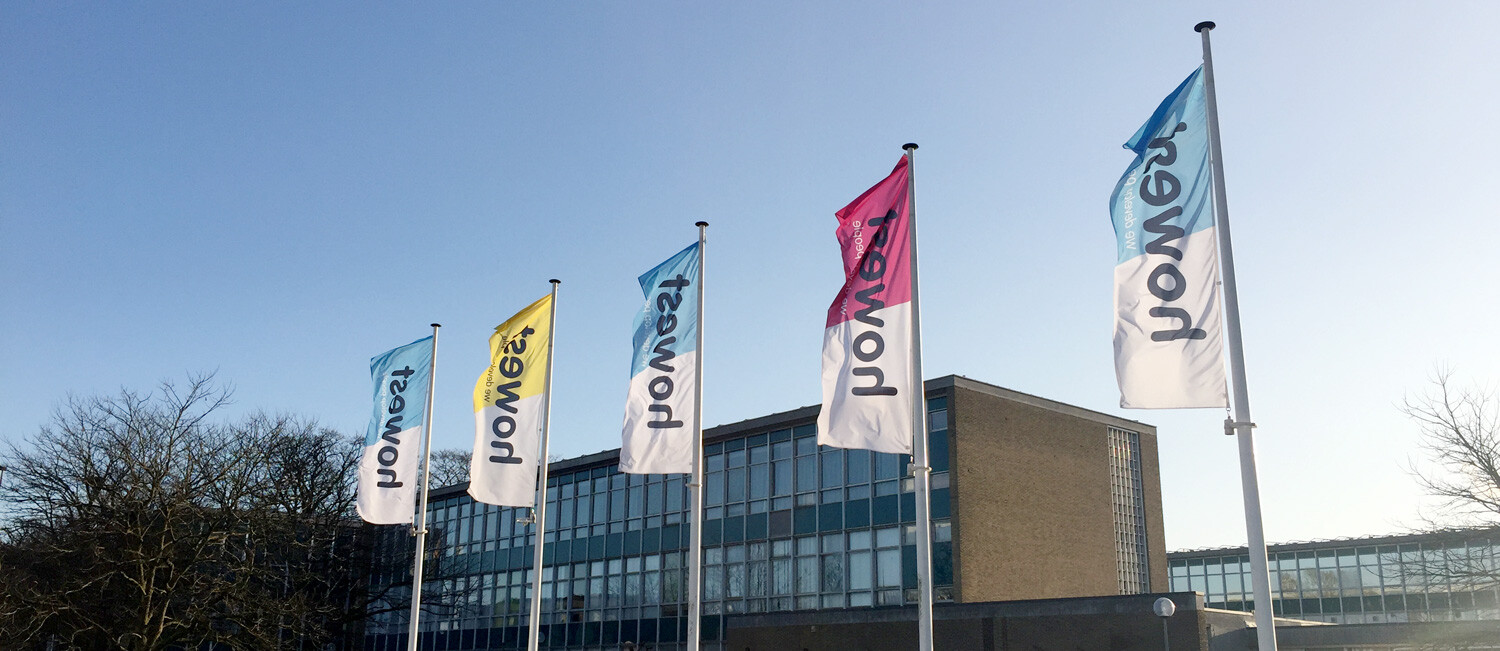Advanced Bachelor of Bioinformatics
Howest University of Applied Sciences (HOWEST)
-
Ubicación Courtrai, Bélgica
-
Tipo de Programa Bachelor
-
Fecha de inicio No info
-
Duración No info
-
Fecha límite de inscripción No info
-
Idioma Inglés
-
Modalidad Presencial
-
Dedicación Jornada completa
-
Ritmo Definido por profesor
-
Tasas de matrícula 961 €
Descripción del programa
""Research into heredity and diseases is no longer possible without programmers. Wondering how you can apply IT and biology skills to lifelike problems in health and disease? Then the unique Advanced Bachelor of Bioinformatics in Bruges (Belgium) is something for you!""
Advanced Bachelor of Bioinformatics is a 1-year full-time programme on campus, or 2 year part-time programme online.
Bioinformatics is a new and spectacular field which uses methods from informatics to store and process molecular biological information (DNA, proteins, functions). In bioinformatics, molecular biology is combined with informatics and programming. A bioinformatics scientist is capable of retrieving the necessary information from databases and of using these to make predictions. As a bioinformatician you will look for application possibilities of informatics within the (biological/biomedical) laboratory.
- Informatics scientist:
application of informatics techniques to storage, organizing and sharing (molecular biological) data.
- Bioinformatics scientist:
data processing and (statistical) analysis by means of bioinformatics tools in a dry lab.
- Programmer:
integration by scripting and automation of bioinformatics tools.
In the course of the bioinformatics training programme, 3 roles are covered: the role of programmer, the role of informatics scientist and the role of bioinformatics scientist. You learn several programming languages like PHP, Python and R and you use the most relevant databases of which you learn to process and interpret the data. During the programme there is a special emphasis on the application of open source tools, both in a Windows and in a Linux environment. During the traineeship (without a bachelor’s thesis) a fourth role is addressed, the role of the New Young Professional, in which the more generic competences of a bachelor (such as working in team, clear communication, …) are pursued.
As the training progresses, you become more and more familiar with the processing of complex biological data, like the analysis of next generation sequencing data (NGS data) or the application of machine learning techniques and you are able to apply these within a professional framework.
All-round Bioinformatics scientist
Thanks to the increasing use of informatics in life sciences, the field of bioinformatics more and more comes to the forefront. Bioinformatics scientists are needed both in the private sector and in research laboratories of universities and their spin-offs (such as Flanders Institute for Biotechnology (VIB)). Researchers really need the bioinformatics scientist to make the link between informatics and molecular biology.
A bioinformatics scientist is a polyvalent staff member who can be employed in a very wide range of functions within scientific research, both in the private sector and in academic research centers. He is the key person for the processing of experimental data, the generation of ab initio data by means of existing models. This can be about evolution theory, comparative genome analyses, the improvement in predicting genetic conditions, the follow-up and maintenance of databases. Briefly, a bioinformatics scientist is the perfect blend between the ICT expert and the molecular biologist!
Various job opportunities with social relevance
The use of bioinformatics within the biomedical/biological field of work is very widespread. Yet, it is sometimes difficult to find the right jobs based solely on a job title. Don't get lost in your search for the perfect job title, but dare to search more broadly for relevant jobs. A limited and incomplete list of possible work areas:
- Laboratories for Molecular Diagnostics within hospitals are increasingly making use of "Next-Generation Sequencing" within the field of DNA diagnostics.
- Centers for Medical Genetics provide services and research for the diagnosis and care of patients with hereditary disorders.
- University research groups within Biotechnology are conducting their experiments on a larger scale and need IT solutions to process the produced molecular data.
- Important (and sometimes even very large) biotechnology companies are responding to innovation and technological developments within the research domains of mass spectrometry and the various types of omics, using bioinformatics.
- "Genomics Core Facilities" support researchers with resources and services to set up and implement high-throughput genomics experiments.
- Pharmaceutical companies are almost desperately looking for employees with an R&D background and a good knowledge of bio-statistics and data processing.
- And do not forget, of course, that you have still enjoyed a good preparatory course in the "wet-lab".
Laboratory scientist of the future
More and more a laboratory scientist is confronted with the introduction of computers and big instruments in the laboratory. Manpowered experiments are gradually being replaced by complex technologies, with an increasing focus on operating the instrument and processing the results.
In addition, molecular and biotechnological research no longer focuses on one gene or protein, but directly on the whole set of genes or proteins within a cell or organism. In order to analyze all data correctly and on a large scale, the analysis pipeline needs to be automated.
The application of new technologies in a wide variety of domains often requires a personalized approach to each problem. Commercial tools are often inadequate here, requiring a customized analysis pipeline.
The Advanced Bachelor of Bioinformatics programme will give you the required knowledge of these new technologies and will also provide you with an overview of common tools and the skills to set up new analysis pipelines. You will be armed against the (upcoming) changes in the laboratory. We make you "future-proof", you become the "lab scientist of the future".



